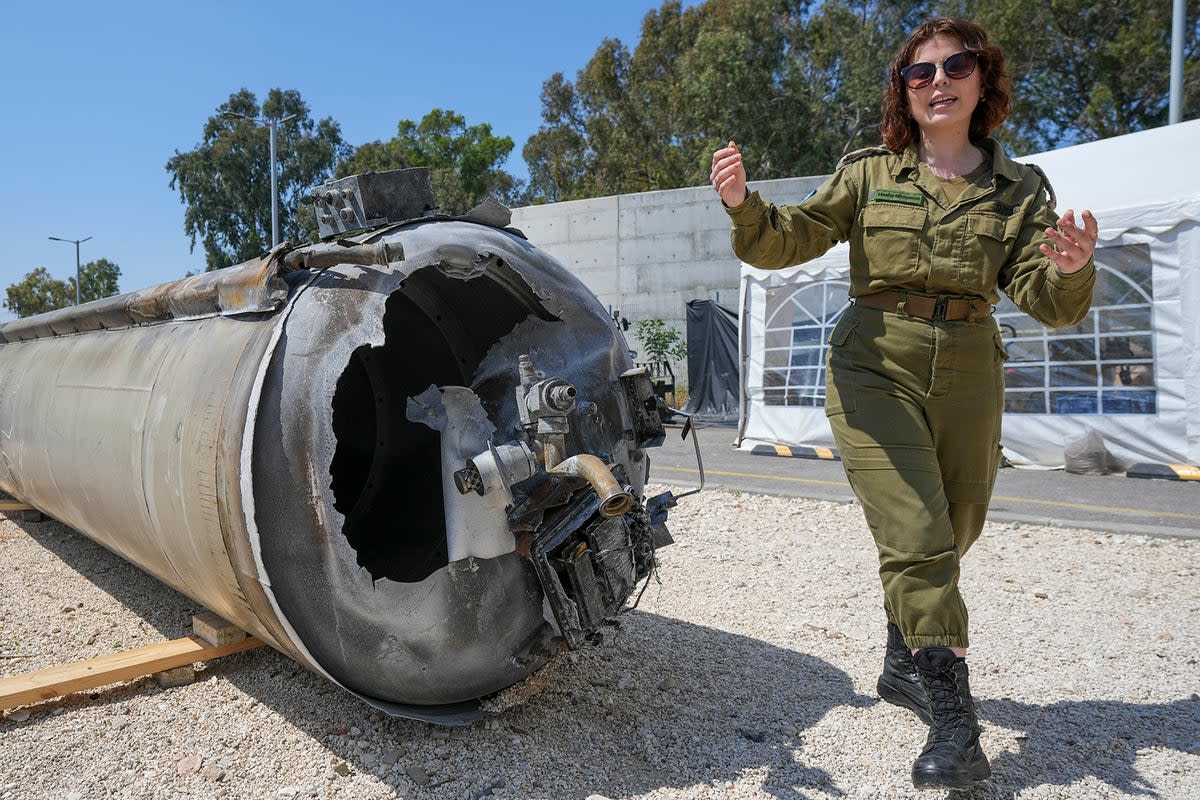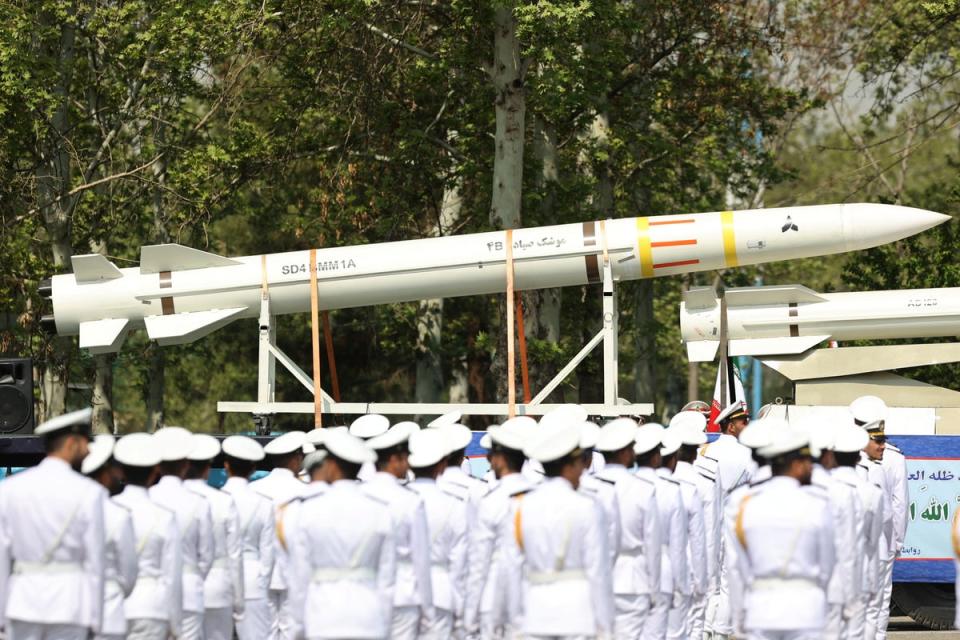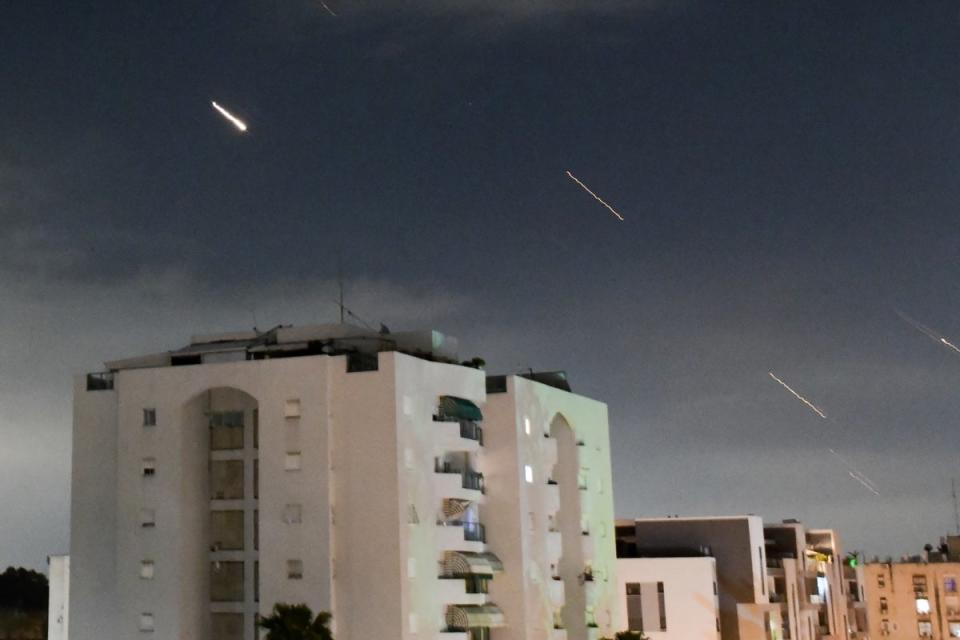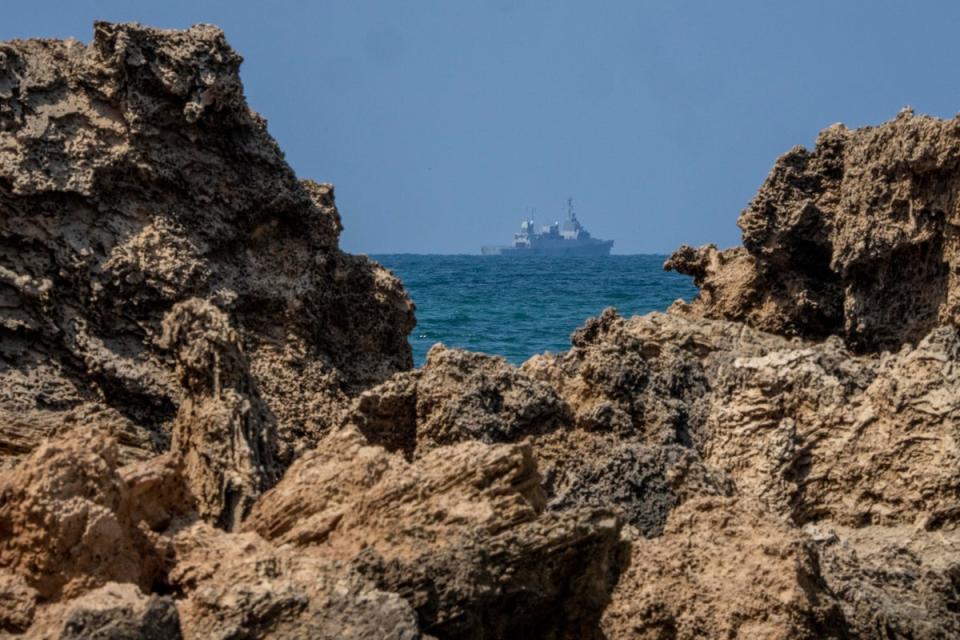Israel’s response to Iran attack will reestablish the rules of the game or lead to a devastating regional war

Israeli leaders will likely decide in the coming days on a military response to Iran’s widespread drone and missile attacks that rocked the country last weekend.
The decision will either reestablish a delicate set of unspoken rules that have governed their regional rivalry for decades, or send the region spiralling towards a wider war that could pull in US forces and its allies.
Iran’s unprecedented Saturday night attack – with hundreds of drones, cruise and ballistic missiles – was the first time it had launched direct strikes against Israel from its territory. Tehran insisted its actions were necessary and legal because Israel had broken an understanding by bombing an Iranian consulate in Damascus on 1 April. Israel has not confirmed or denied it was involved.
The bombing on what is technically Iranian territory was previously thought to be out of bounds, but tensions between the two countries have skyrocketed since Iran’s ally Hamas launched a surprise attack on Israel that killed 1,200 people.
Israel responded with a devastating war in Gaza that has killed nearly 34,000 Palestinians, most of them civilians, according to Palestinian health officials. The United Nations says it has brought the territory to the brink of a “man-made” famine.
Israel has for years launched strikes against Iranian proxies and Iranian positions in neighbouring Syria, although it rarely claims responsibility. Those strikes – which have often hit Iranian Revolutionary Guard Corps positions – have mostly gone unanswered by Tehran. That is, until the strike on the Iranian consulate in Damascus, which killed multiple senior IRGC generals.

Sources in Israel believe that Israeli military intelligence did not realise this attack would ignite such a furious response from Iran – or that it would be the straw that broke the camel’s back.
Iranian leaders decided following the consulate strike that a strong response was required to deter any further encroachments. Even so, they were quick to signal that they didn’t want to start a war.
“The matter can be deemed concluded,” Iran’s mission to the United Nations posted on social media, shortly after the drone and missile assault had finished.
The Israelis did not agree, however. Benny Gantz, a minister in the war cabinet, vowed to “build a regional coalition and exact the price from Iran in the fashion and timing that is right for us”, suggesting that a direct attack on Iran was under consideration.
“It’s a very fine balancing act,” Firas Maksad, a senior fellow at the Middle East Institute in Washington DC, told The Independent. “It will need to be a response that restores deterrence, but that doesn’t trigger an all-out regional war.”
“They certainly need to consider Iran’s direct response capabilities, but also the abilities of its various allies in the region – Hezbollah first and foremost among them – to cause real damage in Israel,” he added.
Mr Maksad said both sides were seeking deterrence, but that reestablishing that without risking a wider war would be difficult.
He suggested a reaction “that is not directed at the Iranian homeland” might not provoke another Iranian response, such as a cyber attack instead of widespread bombing.

However, Israel’s defence minister, Yoav Gallant, said during a visit to Israeli troops near the Lebanon border on Wednesday that Israel would not allow a return to normal.
“The Iranians will not be able to establish a new status of deterrence against the State of Israel. IAF aircraft operate everywhere – the skies of the Middle East are ‘open’, and any enemy that fights us will be hit, no matter where they may be,” he said.
The Israeli public is torn over how to handle it. A survey by Hebrew University in Jerusalem this week found that 52 per cent of the country believes Israel should not respond to the Iranian attack, with that rising to three-quarters of those polled if it “undermines Israel’s security alliance with its allies”.
Analysts and politicians in Israel fear that a dangerous precedent has been set if Iran is able to fire 300 drones, and ballistic and cruise missiles at Israel without any military response.
“The Israeli government has to do something, politically they cannot ignore it completely. As this may be the beginning of something more dangerous,” said Amos Harel, non-resident fellow of Brookings and an Israeli military expert and correspondent.
Israel’s prime minister Benjamin Netanyahu is currently fighting to hold on to a fractious coalition that includes extreme-right hardliners, many of whom may threaten to collapse the government if Israel does not respond with force.
But there are restraining factors, too. US president Joe Biden has pledged his “ironclad” support for Israel’s defence against Iran, but he has also made it very clear that he will not back any offensive operations in response to the attack.
The US is the primary backer of Israel’s war in Gaza, and Mr Biden has suffered domestically for his support as civilian casualties stretched into the tens of thousands. Opening another front in the conflict would damage him significantly just months before a presidential election.

“I think [Netanyahu] will try to find a middle way and hit Iranian targets without getting entangled in a full-scale war. The question is what that looks like,” Mr Harel told The Independent.
The concern in Israel is that Iran has already threatened to respond to whatever Israel does next. Iran’s president, Ebrahim Raisi, said Wednesday that the “tiniest attack” by Israel would bring a “massive and harsh” reaction in turn.
Iranians are getting tougher in their rhetoric and “there is a change in strategy,” Mr Harel added.
Mr Harel said messaging from Tehran is: do not hit targets in Syria as “the price is too high”.
“Now, they are identifying a point where they are going to force Israel into conceding into new rules of engagement.”
But there is concern that a tit-for-tat between Israel and Iran could get out of hand and drag the region to the brink of all-out war particularly with the escalation of cross-border fire between Israel and Iran-backed militant group Hezbollah in neighbouring Lebanon.
Many believe Mr Netanayhau is also playing for time, which is indicated by contradictory statements from his government on how to respond to Iran. The unprecedented Iranian attack has shifted the world’s spotlight away from the humanitarian catastrophe in Gaza and accusations that Israel has deliberately restricted aid, targeted civilians and aid workers and created a man-made famine – charges Israel vehemently denies.
It also means less media and political attention on Israel’s promise to launch what would be a devastating ground offensive into Rafah, the last refuge for displaced civilians in the besieged Gaza Strip.

